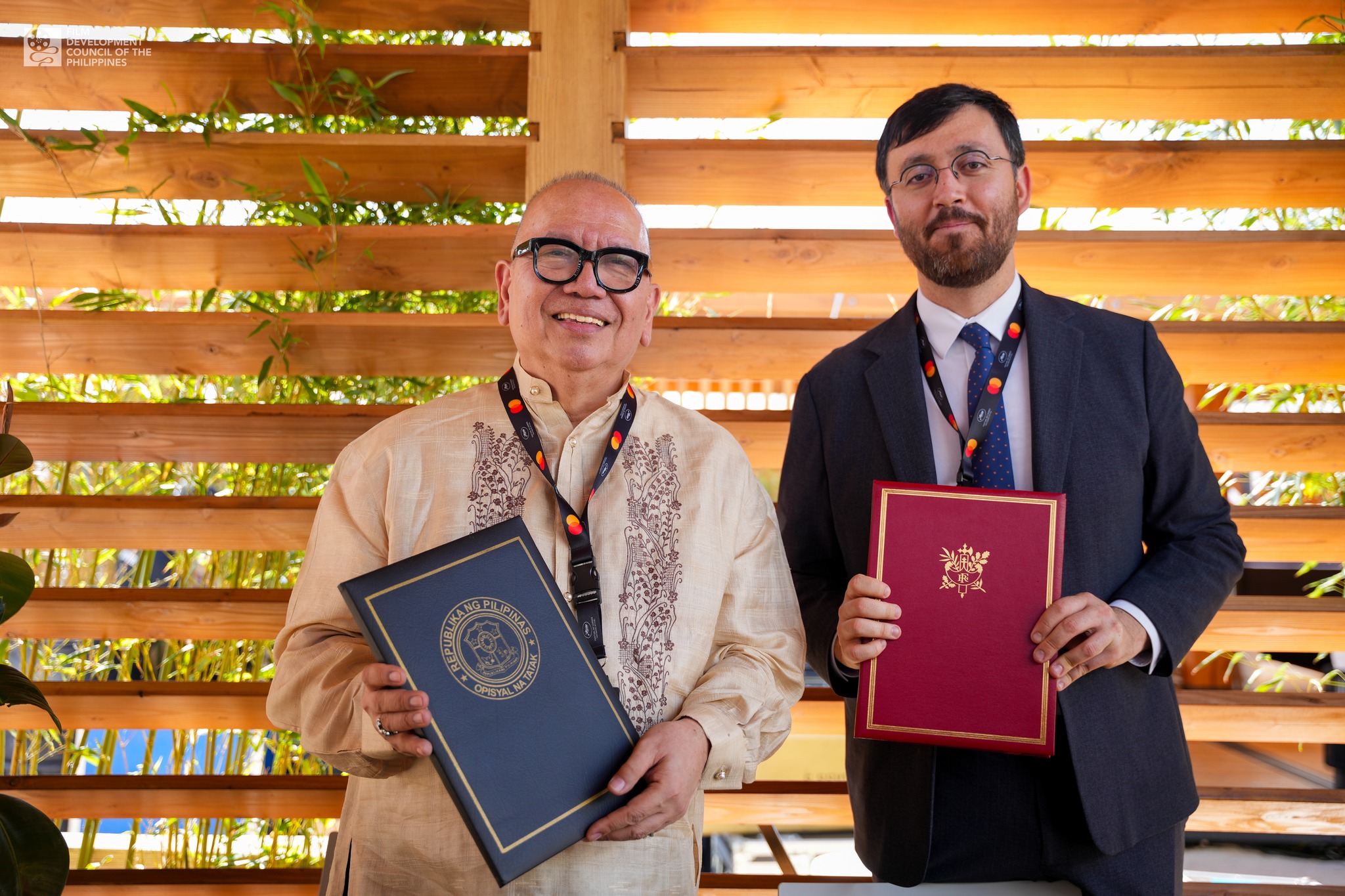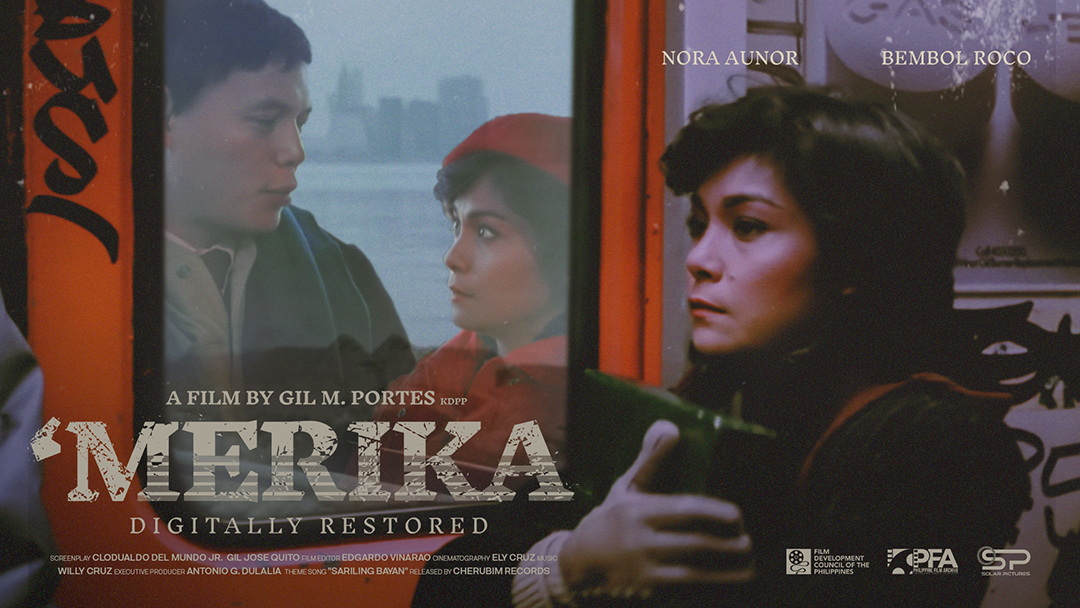PH shines in Locarno Open Doors

The Locarno International Film Festival in Switzerland is one of the oldest A-list film festivals in the world. In its 73rd year, Locarno carried on with its tradition of being a prestigious platform of auteur cinema by featuring yet another quality out-of-the-box program of arthouse films.
It’s the first time that Locarno was held online, and it has successfully reinvented itself through the innovative “Locarno 2020 – For the Future of Films.” The Locarno, which took place from August 5 to 15, continued to weave cinema magic by holding screenings and panel discussions virtually.

The columnist with director Brillante Mendoza
Early this year, the Film Development Council of the Philippines (FDCP) and Locarno organizers have already mapped out a special feature for the year-long centennial celebration of Philippine Cinema, which will end on September 11.
As a grand conclusion to the One Hundred Years of Philippine Cinema, Locarno Open Doors — the festival’s program to promote independent filmmaking — named the Philippines as a Spotlight Country. A total of 13 Filipino films and projects were part of Locarno 2020, marking another feat for the Philippine film industry.
Amid the Covid-19 pandemic, the FDCP has continued its commitment to promote Philippine Cinema and look for platforms to showcase our Filipino filmmakers and their works. I cannot thank Locarno enough for pushing through with the Spotlight feature as this has greatly helped our filmmakers maintain their visibility in the international scene.
Multi-awarded filmmaker and animator Avid Liongoren won the Open Doors Development Support grant worth 14,000 Swiss francs for “Zsa Zsa Zaturnnah vs. The Amazonistas of Planet X.” The animated feature film, co-produced by Franck Priot of France, was included in the Locarno Open Doors Hub together with Isabel Sandoval’s “Tropical Gothic.” Sandoval and Liongoren got to meet with potential international collaborators through Open Doors Hub.

The columnist with Avid Liongoren
Six Filpino works were part of the Locarno Open Doors Screenings lineup: the feature films “Masahista” by Brillante Mendoza, “Six Degrees of Separation from Lilia Cuntapay” by Antoinette Jadaone, “Aparisyon” by Sandoval, and “Engkwentro” by Pepe Diokno, plus the short films “Babylon” by Keith Deligero and “Manong ng Pa-aling (Man of Pa-aling)” by E. del Mundo.
“Filipiñana” by Rafael Manuel was featured in Locarno Open Doors Lab. This full-length project is based on the short film with the same title that won the Berlinale Shorts Silver Bear prize in March. The project was represented by producer Kyle Nieva of Screen Asia.
For Locarno Open Doors Head Sophie Bourdon, the program highlights a Spotlight region’s “impressive inter-generational dynamism, presenting on the one hand the work of young talents, especially in the field of the short film in a variety of forms, and on the other a range of full-length features awaiting rediscovery, made by directors who over the years have established themselves on the international circuit.”
Meanwhile, “Nowhere Near” by Miko Revereza and “Kapag Wala Nang Mga Alon (When the Waves Are Gone)” by Lav Diaz were part of The Films After Tomorrow section. This new section was created for filmmakers who had to put their productions on hold because of the lockdown due to Covid-19.

Lav Diaz with Piolo Pascual and Shaina Magdayao at the 2018 Berlin International Film Festival
Locarno went the extra mile by coming up with the program called A Journey in the Festival’s History, which is composed of 20 films selected by filmmakers with projects in The Films After Tomorrow section. “Mababangong Bangungot (Perfumed Nightmare)” by National Artist for Film Kidlat Tahimik was chosen by “De Humani Corporis Fabrica (The Fabric of the Human Body)” directors Verena Paravel and Lucien Castaing-Taylor. Kidlat Tahimik, the latest in the line-up of National Artists for Film, is regarded as the Father of Philippine Independent Cinema.
Last but not the least, “Here, Here” by Joanne Cesario was in the Pardi Di Domani section, which is for short and medium-length films by up-and-coming filmmakers who have not made a full length feature. Filipino visual artist and filmmaker Kiri Dalena was part of the jury.
In addition, figures from Philippine Cinema were invited to roundtable discussions and panel sessions. The August 11 roundtable “2020 in Southeast Asia: Perspectives from Indonesia, Malaysia, Myanmar, and the Philippines” featured director Mouly Surya from Indonesia, producer Nandita Solomon from Malaysia, producer Thu Thu Shein from Myanmar, and director-writer Jadaone from the Philippines. They talked about women representation in their respective industries.
I was also invited as one of the guest speakers during the said roundtable moderated by Paolo Bertolin, together with Maung Okkar of Save Myanmar Film. I enthusiastically mentioned the FDCP’s initiatives such as Cine Lokal, our FilmPhilippines co-production incentives, the One Hundred Years of Philippine Cinema celebration, and the Philippine Cinema Fund which had just been approved by our Board of Trustees hours before the Locarno roundtable.
The roundtable discussion talked about how film industries are coping with the Covid-19 situation, and how streaming platforms have provided a much-needed boost for Southeast Asian Cinema. It was humbling to listen to the initiatives and opinions of other Southeast Asian filmmakers as they shared their own experiences during the pandemic. This made me ascertain that we are all going through the same struggles.
This virtual festival version of Locarno was indeed a success despite the new setup. The talks were enriching and on-point, delving on current issues regarding the pandemic. Another important talk was on the future of theatrical releases which was part of a Locarno Pro panel session that I attended. These are challenging times for global cinema, and I learned that we must turn obstacles into opportunities.
I realized that now is the time to champion diversity, particularly arthouse films and local titles that did not get enough attention from the industry and the public. These films that were just an afterthought of theater owners, because they relied so much on studio films, could potentially provide the sustainability to help cinemas survive.
Supporting our independent filmmakers is crucial and more important than ever in this time of a pandemic. The Locarno Film Festival provided an excellent platform for such support, and the FDCP is honored to have collaborated with the Open Doors program for the Spotlight Philippines feature. There is so much more to the Philippines than what is depicted by one film or two, and we wish to champion the many facets of our cinema.
As we are about to conclude the Philippine Cinema Centennial celebration, I am proud of how our independent filmmaking has surged not just locally but internationally as well. It is one of our goals to continue to enhance and promote independent cinema. Just like our Locarno Open Doors collaboration, expect more FDCP projects and programs that further Philippine Independent Cinema the world over.
Notes from the Chair is part of the Arts Awake section of The Sunday Times Magazine published by The Manila Times. Click HERE to view the article on The Manila Times website.





